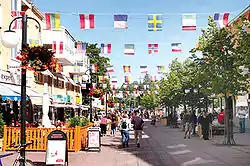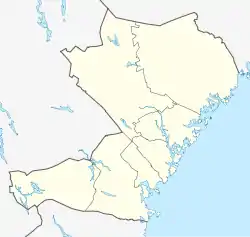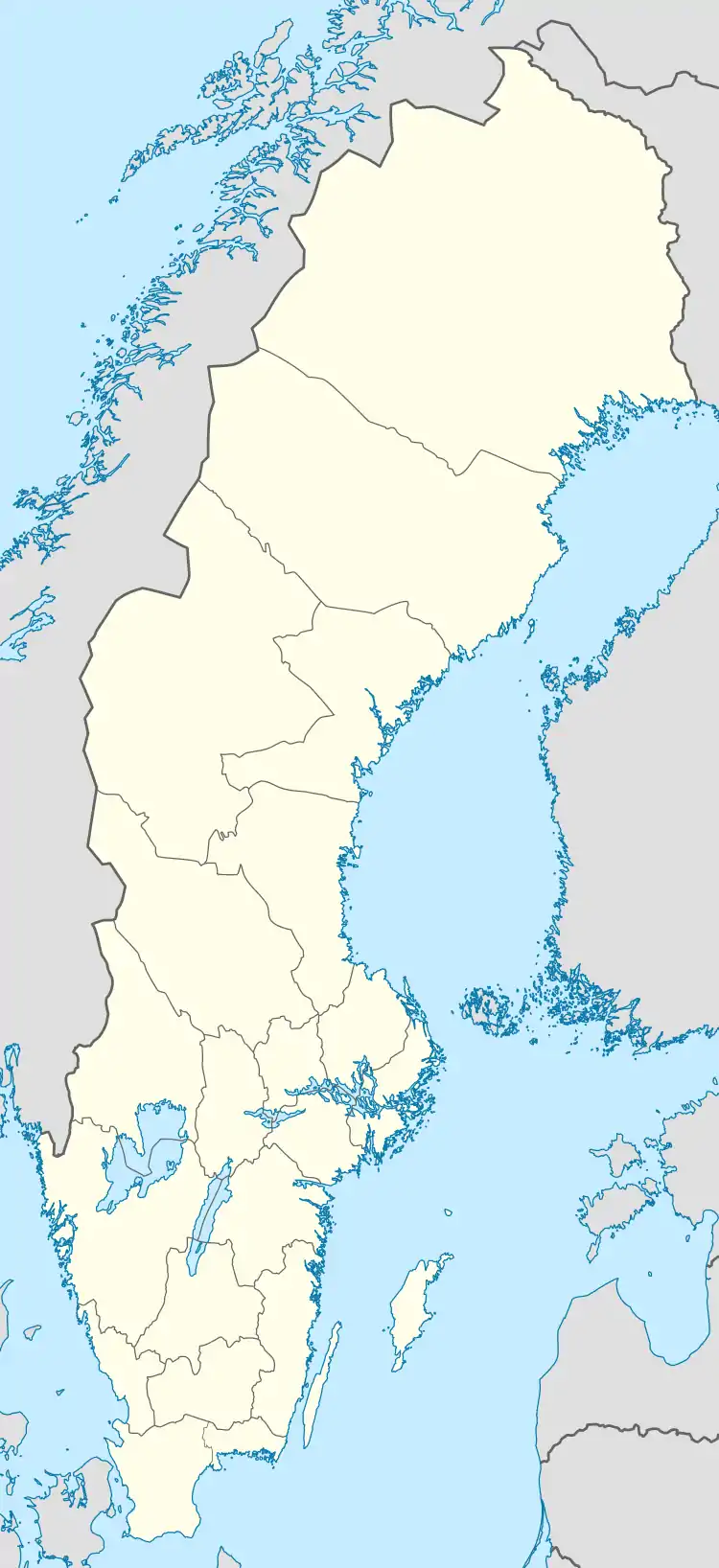Kramfors
Kramfors (Swedish pronunciation: [ˈkrɑ̂ːmfɔʂ])[2] is a locality and the seat of Kramfors Municipality in Västernorrland County, Sweden. It had a population of 5,990 inhabitants in 2010.[1]
Kramfors | |
|---|---|
 Kramfors | |
 Kramfors  Kramfors | |
| Coordinates: 62°56′N 17°48′E | |
| Country | Sweden |
| Province | Ångermanland |
| County | Västernorrland County |
| Municipality | Kramfors Municipality |
| Area | |
| • Total | 7.34 km2 (2.83 sq mi) |
| Population (31 December 2010)[1] | |
| • Total | 5,990 |
| • Density | 816/km2 (2,110/sq mi) |
| Time zone | UTC+1 (CET) |
| • Summer (DST) | UTC+2 (CEST) |
| Climate | Dfb |
| Website | kramfors |
The town grew on the western bank of the Ångerman river in the 19th century as harvested logs were floated downriver to be processed at local sawmills and pulp mills. Christopher Kramm introduced the river's first steam-driven saw, naming it after himself. The name of the town in turn derives from his name and the word fors ("rapid"). In the 1960s and 1970s, as the timber industry went into decline, the population of Kramfors declined as well.
The original settlement of Kramfors was located in Gudmundrå municipality, but in 1889 received the status of a so-called municipalsamhälle or borough, still remaining part of the original municipality. In 1947 it was awarded city status, one of the last in the country to do so. Since municipal reform in 1974, it serves as the seat of Kramfors Municipality.
The municipality of Kramfors has about 20,000 inhabitants, and is situated almost in the middle of Sweden's east coast in Northern Sweden. Within 100 kilometres from Kramfors there is a population of about 250,000 people, and within 200 kilometres about half a million people, and the large Norrland towns of Sundsvall and Umeå are within commuting distance.
Kramfors is probably best known for its beautiful and varied High Coast landscape, which has been given World Heritage status, and which provides the inhabitants with the opportunity of an outdoors lifestyle.
One of the tennis academies of Sweden is situated in Kramfors.
Kramfors also hosts the Folke Bernadotte Academy, a government agency focused on improving international conflict and crisis management, with a special interest in peace operations. It offers courses in peacekeeping intelligence and information operations that are open to all nations and to non-governmental organizations.
Notable natives
- Erika Grahm, professional ice hockey player for Brynäs IF and the Swedish national team
- Mario Kempe is a Swedish professional ice hockey player
- Adrian Kempe is a Swedish professional ice hockey player. He is currently playing for the Los Angeles Kings in the National Hockey League
References
| Wikimedia Commons has media related to Kramfors. |
| Wikivoyage has a travel guide for Kramfors. |
- "Tätorternas landareal, folkmängd och invånare per km2 2005 och 2010" (in Swedish). Statistics Sweden. 14 December 2011. Archived from the original on 10 January 2012. Retrieved 10 January 2012.
- Jöran Sahlgren; Gösta Bergman (1979). Svenska ortnamn med uttalsuppgifter (in Swedish). p. 14.